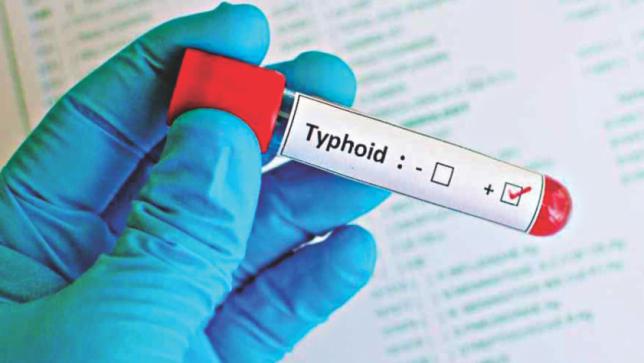Drug Resistant Typhoid Emerging in Pakistan, Cambodia, Myanmar, Indonesia and Philippines, Travelers Warned to Be Cautious
Source: Thailand Medical news Sep 17, 2019 6 years, 3 months, 3 weeks, 5 days, 22 hours, 18 minutes ago
Since 2016, an XDR (extensively drug resistant) group of related typhoid organisms (known as a clade) has emerged in Pakistan and has been reported as resistant to all first-line antibiotic agents. The diseases is also rapidly emerging in countries like Cambodia, Myanmar, Indonesia and Philippines with several cases being reported of foreign travelers from England, Germany, US and Australia and even Singapore contracting the disease.

The recent case of extensively drug-resistant (XDR) typhoid in Australia involving a toddler has been reported by doctors whose letter was published recently in the
Medical Journal of Australia, highlighting the need for people contemplating travel to South and South East Asia to be vaccinated.
Typhoid is a bacterial infection that can lead to a high fever, diarrhea, and vomiting. It can be fatal especially when the XDR strains are involved. It is caused by the bacteria Salmonella typhi. The infection is often passed on through contaminated food and drinking water, and it is more prevalent in places where general hygiene is lacking and handwashing is less frequent.
Senior lecturer in Child and Adolescent Health at the University of Sydney and the Children's Hospital at Westmead, Dr. Philip Britton and colleagues reported on a 20-month-old Australian-born girl who presented to the hospital with features of enteric fever 14 days after returning from a 3-month trip to Pakistan.
"Diarrhoea began in Pakistan 6 weeks before her return and continued despite the use of oral antibiotics prescribed locally in Pakistan. Ten days of high fevers, irritability, vomiting and reduced oral intake prompted admission.Blood and stool cultures grew extended spectrum β-lactamase-producing Salmonella enterica serovar Typhi. The isolate showed microbiological features typical for the XDR clade, with resistance to chloramphenicol, ampicillin, trimethoprim sulfamethoxazole, fluoroquinolones and third-generation cephalosporins.” commented Dr Britton.
The pediatric patient responded to intravenous meropenem and oral azithromycin and was discharged after an uncomplicated 8-day admission to complete a further week of azithromycin.
The doctors warned that Australia was not immune to the "emerging threat" of XDR typhoid. Typhoid must be considered as a diagnosis for febrile returned travelers from endemic regions, including South and South-East Asia.
Typhoid vaccination is recommended from 2 years of age if travel is planned to these regions. The important role of doctors in providing travel-related vaccine advice and care to returning travelers must not be underestimated. All travelers from various countries including travelers from Thailand heading to these destinations should consult a doctor prior to departure to make sure all necessary vaccinations and precautions are in place.WHO has also already issued health and travel warnings with regards to the emerging drug-resistant disease.
Reference : Annaleise Howard‐Jones et al. First reported case of extensively drug‐resistant typhoid in Australia, Medical Journal of Australia (2019). DOI: 10.5694/mja2.50316
